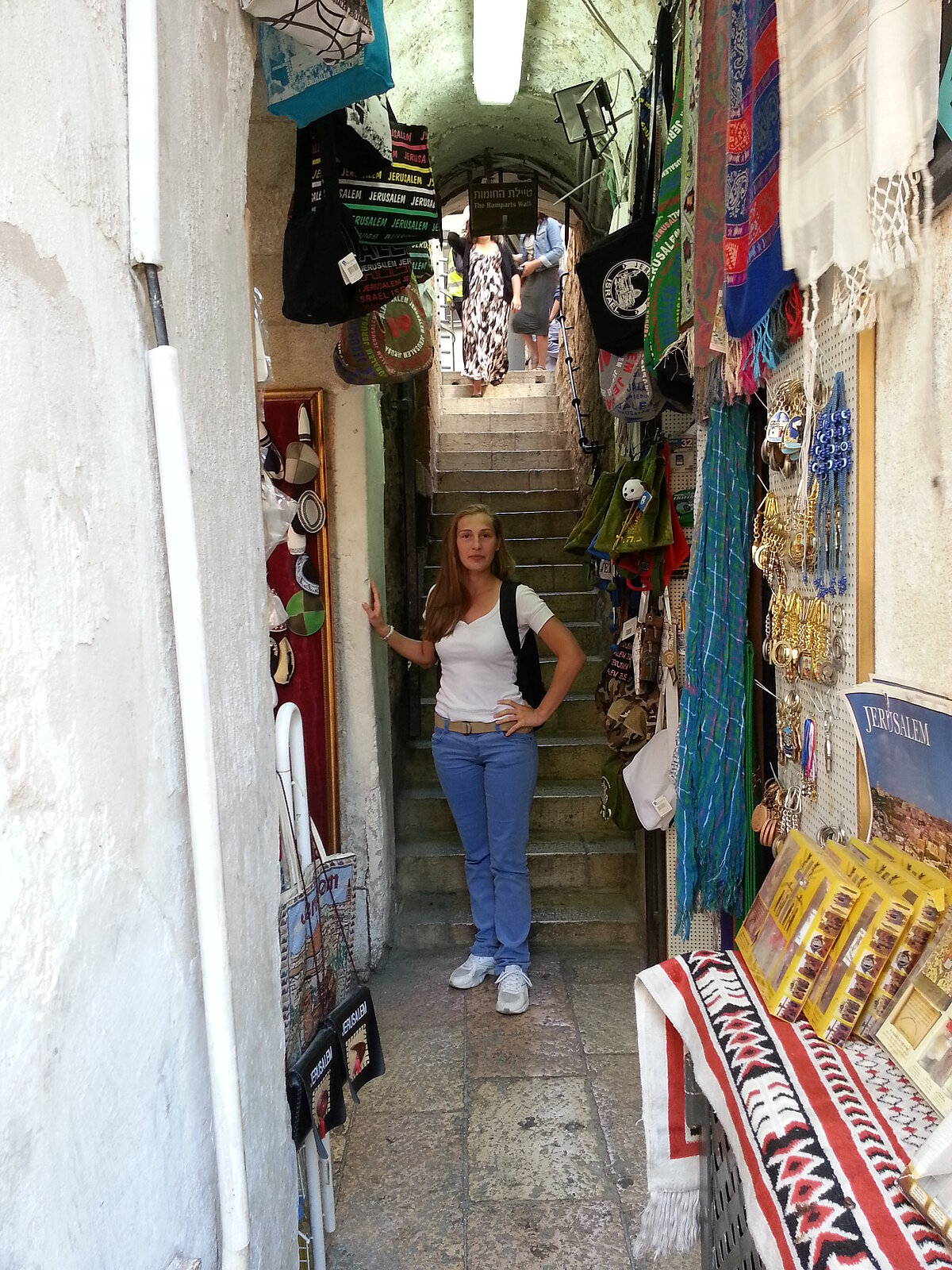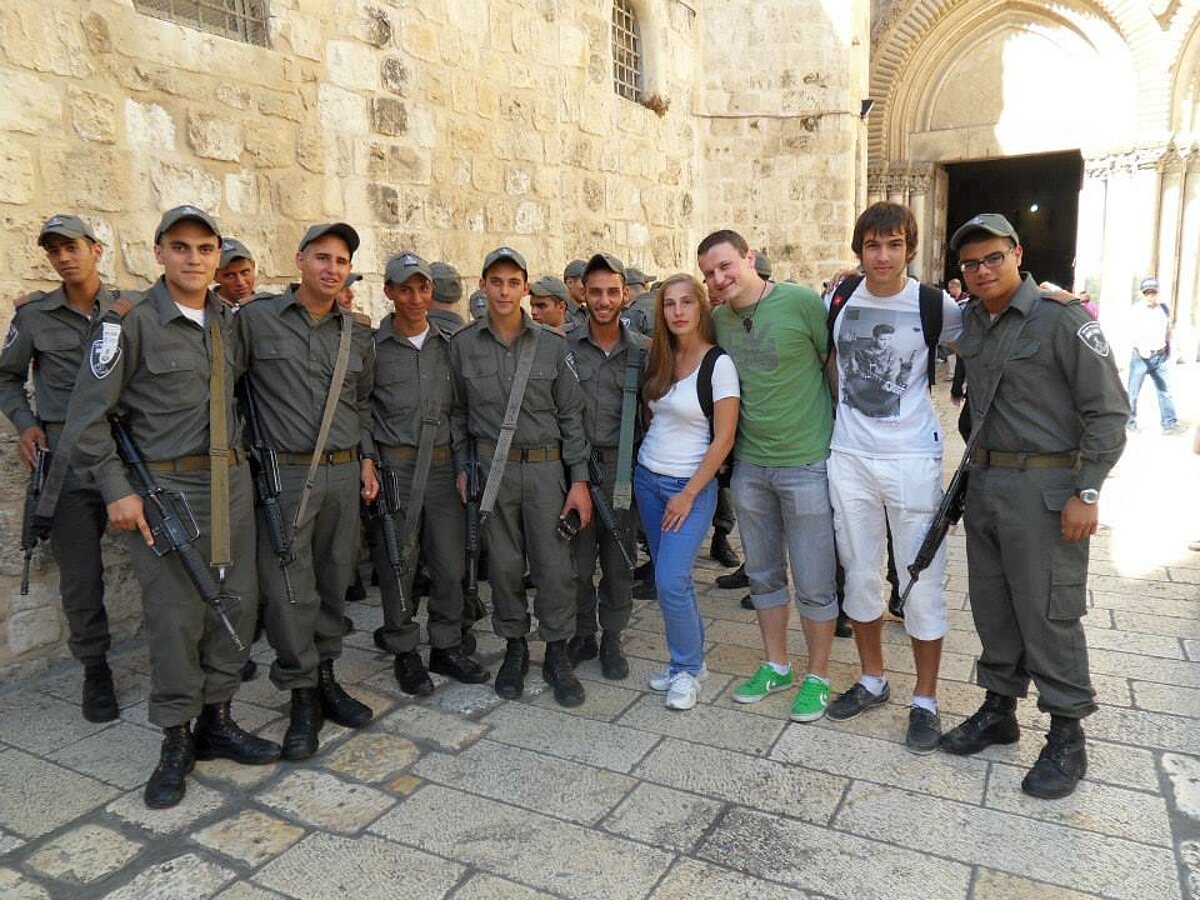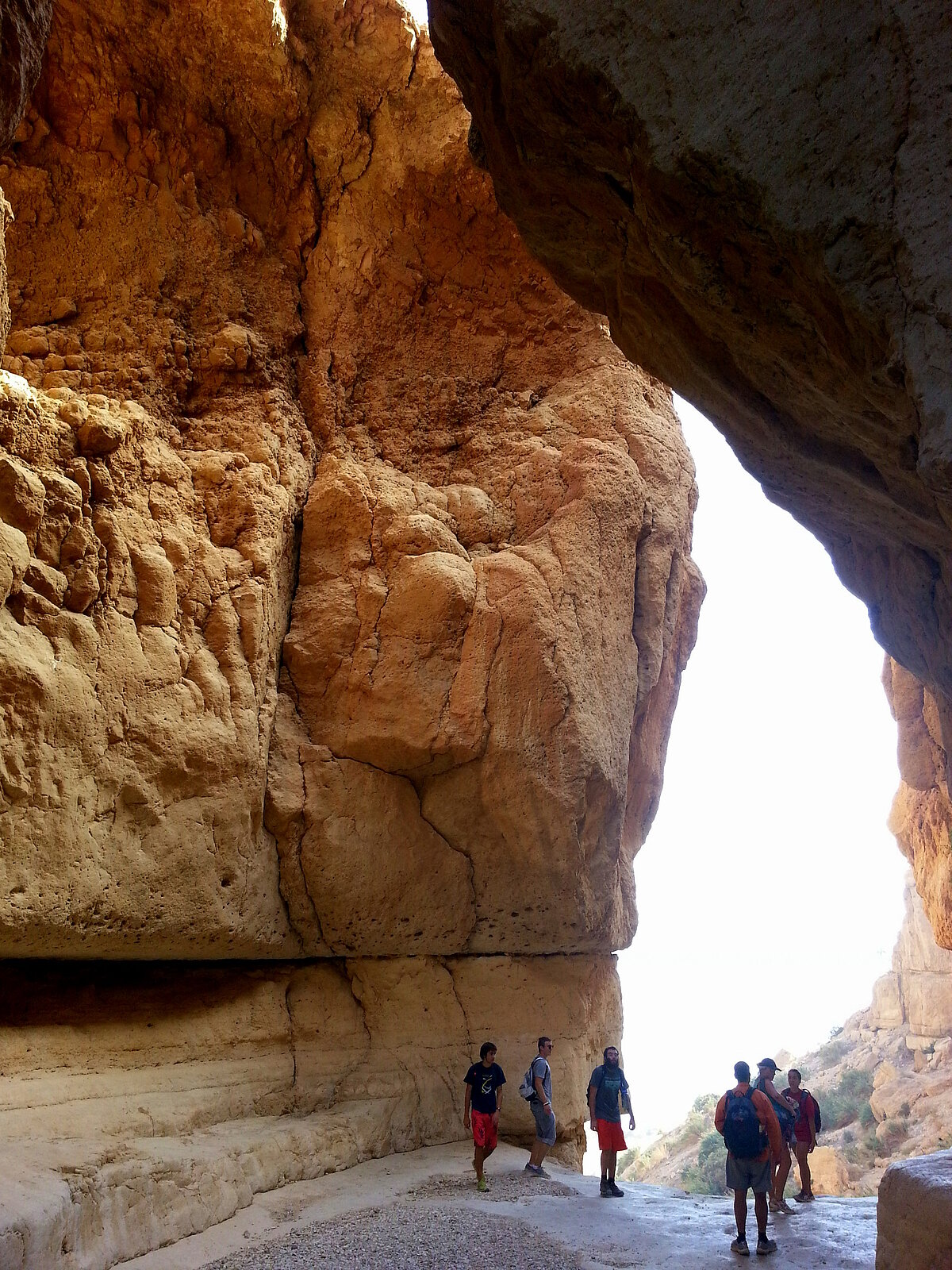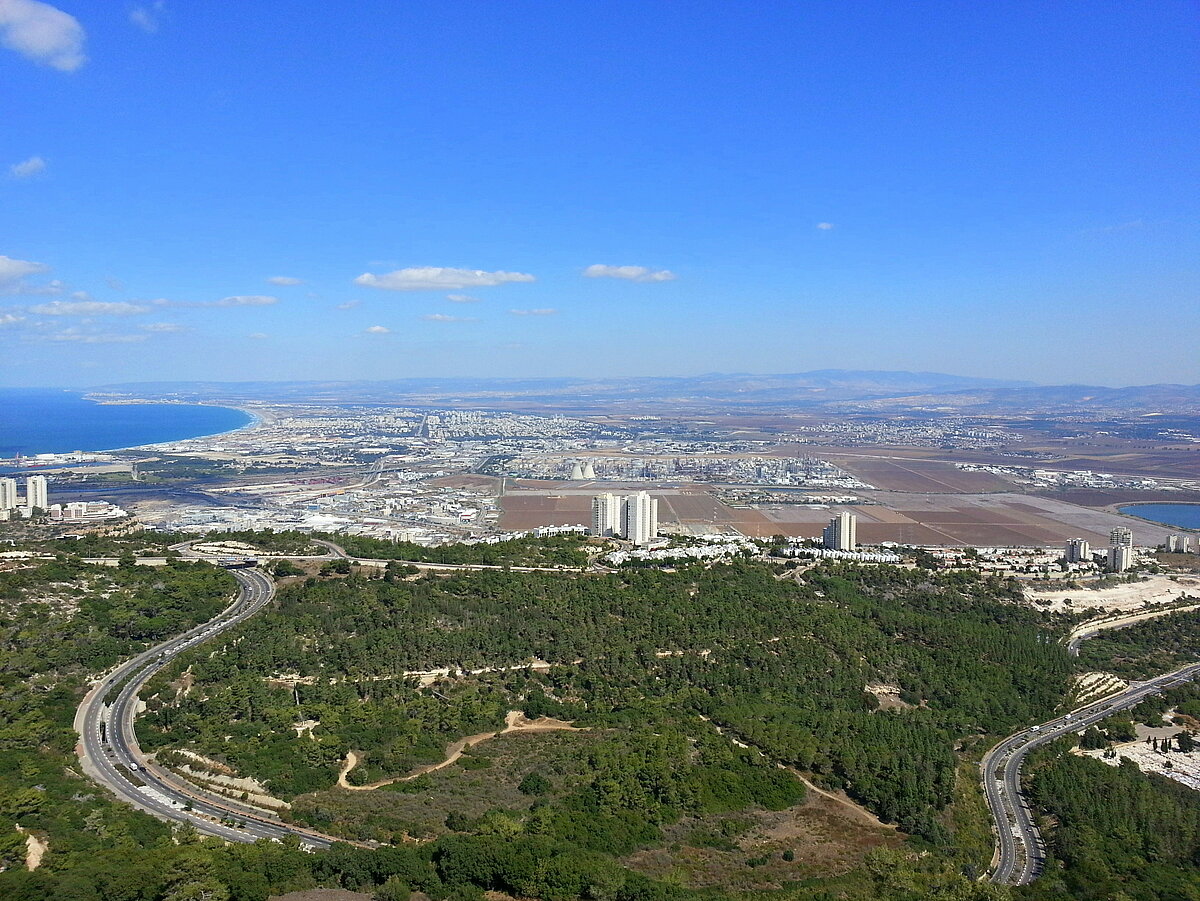
I wanted to get to know Israel and its culture, and I had never visited the Middle East before; therefore, I applied for EMAIL II, an Erasmus Mundus project. I was able to apply for several universities. Fortunately, I was accepted by the University of Haifa (UH) which was my top choice. When I applied, I was in my last semester of the International Business MA study programme at the UL Faculty of Economics and Management. As the UH offered a similar study programme, it was quite easy to find the necessary courses. Moreover, the language of instruction was English.
The studies at the UH are organised just like in Europe; the length of lectures and criteria to receive credits are identical. The teaching staff is international—I had lecturers not only from Israel, but also from the United States and Iran. Students had an opportunity to learn one of Israel’s official languages—Hebrew or Arabic. By the way, the language studies took most of my time. I advise students to choose courses carefully to avoid problems with recognition of credits, for example, due to the content of a course.
There were only written exams; students received their results by e-mail or from the secretary. The grading system is different—students receive percentage grades (from 0 to 100). To pass a course, you need at least 61 per cent.
Traditions and travelling
The UH campus is located on a hill on the outskirts of Haifa. There’s a beautiful view on the Mediterranean Sea. I lived in the University’s accommodation with 24-hour security. Everything you need was available on campus: a post office, bank, several shops, cafes and even McDonald’s (serving kosher meals, of course). The University building and all the shops are closed on Sabbath, so students had to do their Saturday food shopping in the city centre.
Public offices and public transport were closed on Sabbath. Some shops were open in Haifa and Tel Aviv, but Jerusalem was practically empty.
The scholarship was big enough to travel around Israel and its neighbouring countries. Luckily, I could arrange my timetable to have three days per week off. Israel is a relatively small country; it is about three times smaller than Latvia. Therefore, at the first weekends, I visited the closest cities and the most popular tourist sites including Tel Aviv, Jerusalem and Acre, as well as the Golan Heights and the Dead Sea. I would like to mention that the UH organised special trips for the international students, for example, a two-day walking tour to the Dead Sea with a night spent in a Bedouin tent.
Calm alert
At first, it was hard to get used to seeing young Israelis with military guns everywhere, some of them loaded. It was funny to see some young girls with a Hello Kitty or some other girlish backpack holding a gun so heavy that carrying it took effort. After their service, most young Israelis first travel around and enrol at a university only at the age of 21 or 22. After graduation, they pursue their careers; however, lots of them already have a considerable life experience.
It was hard to get used to the enhanced security measures. Bags were checked before entering any public building. There is at least one bunker per floor in every residential building. When sirens go off, everyone has to quit what they are doing and quickly find the closest shelter. Although media often report on conflicts with the neighbouring countries, the Israelis themselves are very calm about every security alert and know what to do.
One of the most interesting experiences was a visit to Jerusalem after a blizzard. While it snows almost every winter in Israel, there is hardly any rain or snow overall. In 2013, snow reached up to half a metre 50 and the city was completely paralysed. When arriving at Jerusalem’s station, people continued their way on foot or called their friends and relatives because the public transport had been brought to a halt. Police cars patrolled on the streets, helping tourists reach hotels. Luckily, I and my colleagues managed to find a car that took us to a hostel. However, it turned out that electricity was cut off in the part of Jerusalem including our hostel. The hostel owner kindly offered us to spend a night in a specially designed shelter in the city centre. Another option was to leave Jerusalem by train before the tracks were flooded. Interestingly, Israelis are prepared for an enemy attack and an earthquake, yet they seem completely helpless in case of a blizzard.
I will return
I met amazing people during my studies and I am still in touch with them. Since I was the only student from Latvia, I tried to get to know every exchange student. Some students had a same nationality and they usually stuck together. There were lots of students from the United States, but most of the European students came from Poland, Germany, Spain, and the Czech Republic. There were around 130 exchange students that term.
I am very satisfied with my studies at the UH. I believe Haifa is the most beautiful city in Israel. The weather was perfect to go to the beach at weekends. The beach was clean and not as crowded as Riga beach during the summer. Haifa has a rich cultural heritage, a big port, lots of museums and Arab districts as well. If I ever go to Israel again, I will definitely visit Haifa.
I would like to thank the UL staff for their help with the necessary formalities and document.

 LU konference
LU konference

